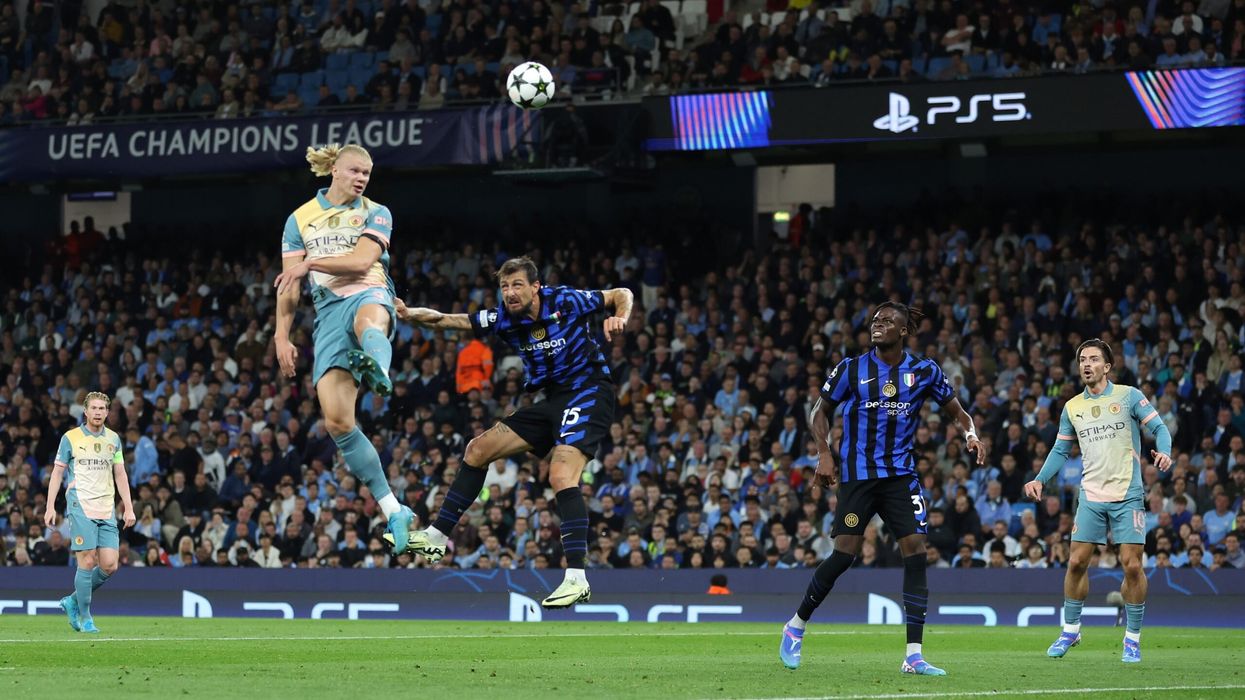MANCHESTER City drew 0-0 against Inter Milan in their opening Champions League match on Wednesday. Meanwhile, Paris Saint-Germain secured a last-minute win over debutants Girona.
City, who have won all four of their Premier League games this season, were unable to break down Inter in a repeat of the 2023 final, which City won. Kevin De Bruyne was substituted at half-time due to injury, and Phil Foden had City's best opportunity, but his shot was saved by Inter goalkeeper Yann Sommer. Erling Haaland, who was seeking his 100th goal for the club, was kept quiet.
"It was a very intense game against a strong opponent. We knew what was coming; they are a top team as well, and they are used to winning, so we were not going to have an easy job," City defender Ruben Dias told TNT Sports.
Henrikh Mkhitaryan had a chance to win the game for Inter but missed 15 minutes from the end. City extended their unbeaten run in the competition to 24 matches, just one short of the record set by Manchester United between 2007 and 2009. This was only the second time in 42 home Champions League games under Pep Guardiola that City failed to score.
"Our plan was to show that we're not scared to play here," Inter midfielder Hakan Calhanoglu said.
PSG, facing Girona, seemed to be heading for a draw until a goalkeeping error by Paulo Gazzaniga allowed Nuno Mendes’ cross to slip through in the 90th minute, giving the French champions a 1-0 victory.
"It was a difficult game; they're a team that plays well with the ball," Mendes told Canal Plus. "I was surprised by the goal. The goalkeeper was there and it got through."
In other matches, Borussia Dortmund, last season's runners-up, won 3-0 at Club Brugge thanks to two goals from Jamie Gittens, who came off the bench. Serhou Guirassy added a penalty in stoppage time.
Celtic began their campaign with a 5-1 win over Slovan Bratislava, marking their first victory in an opening Champions League game in 13 attempts. Liam Scales, Kyogo Furuhashi, Daizen Maeda, and Adam Idah scored for Celtic, while Kevin Wimmer pulled one back for the visitors.
"It's a fantastic night," Celtic captain Callum McGregor told TNT Sports. "I hope the supporters enjoyed it because the managers and players did. This is the next level for the group in terms of growth and development."
Bologna drew 0-0 with Shakhtar Donetsk in their first-ever Champions League match. Lukasz Skorupski saved a penalty from Shakhtar's Georgiy Sudakov early in the game.
Sparta Prague defeated Red Bull Salzburg 3-0 with goals from Kaan Kairinen, Victor Olatunji, and Qazim Laci, securing their first win in the competition proper since 2003.
(With inputs from AFP)




